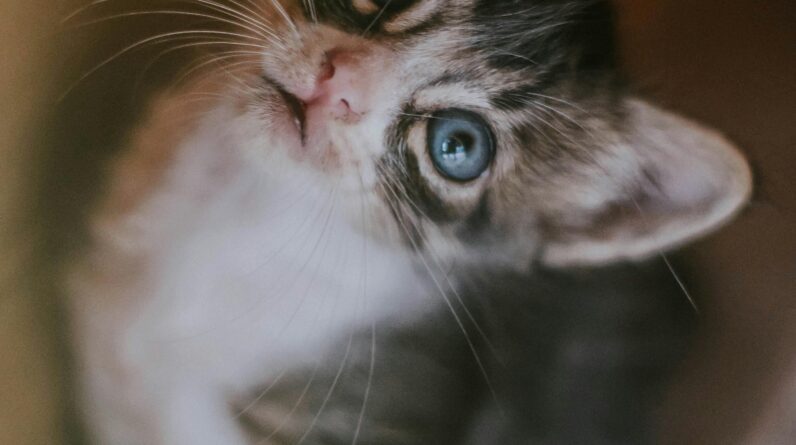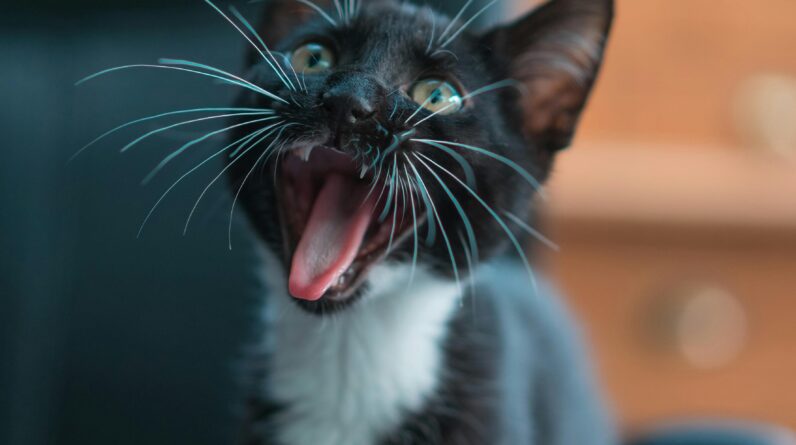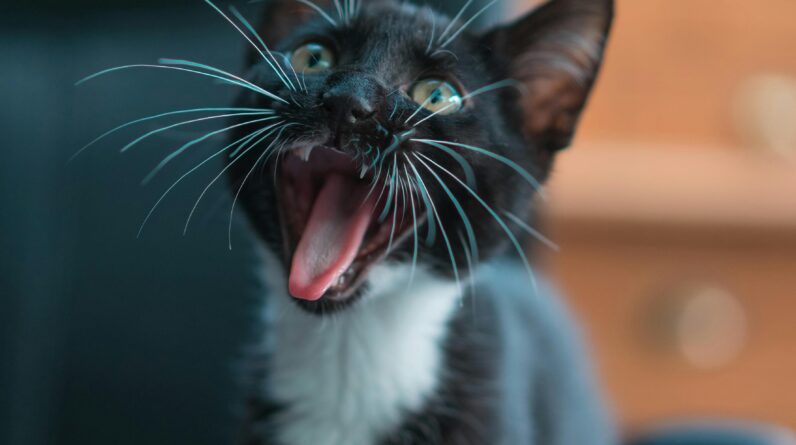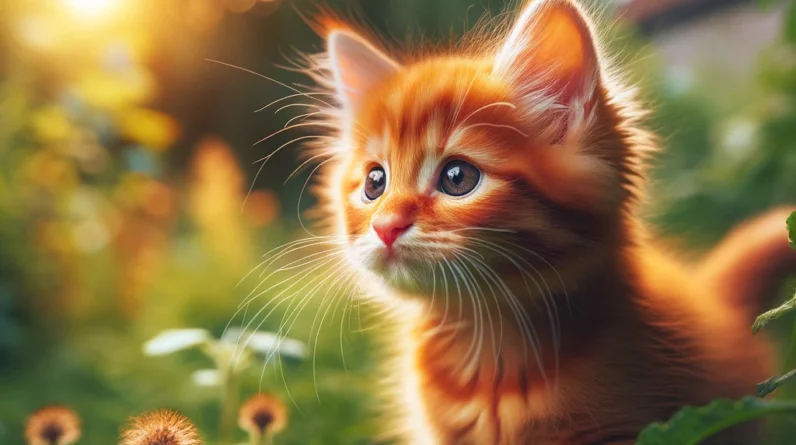
Unraveling the Mystery: Are Ginger Cats Truly the Friendliest?
Ginger cats, with their striking orange coats and captivating green eyes, have long been the subject of a delightful question: Are they inherently friendlier than other felines?
This article delves into this query, exploring whether there’s truth behind the notion or if it’s merely a charming myth.
Key Takeaways:
- Personality Over Color: A cat’s behavior is influenced more by genetics, upbringing, and environment than by fur color.
- Unique Characters: Like humans, each cat is unique. Don’t rely on stereotypes; get to know their individual personality.
- Media Influence: Popular culture, like Garfield, can shape our perceptions, but remember these are fictional representations.
- Care and Environment: Provide regular socialization, proper care, and a loving environment for a well-adjusted cat.
- Adoption Consideration: When adopting, focus on the cat’s personality and needs rather than just its appearance.
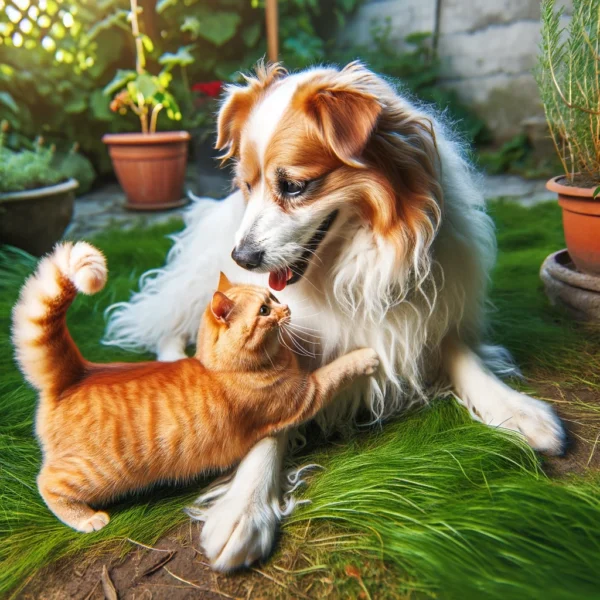

The Ginger Cat Persona: Myth or Reality?
Ginger cats are regularly seen in movies, books, and cartoons as friendly and outgoing.
They are famous for their warm, approachable demeanor.
But, there’s more to a cat’s nature than just the color of its fur.
Firstly, genetics are a big factor.
Just like people, cats inherit traits from their parents.
This can influence how they interact with humans and other animals.
But it’s not just about genes.
The way a cat is raised, especially in its early weeks, matters a lot.
Kittens that are handled gently by humans from a young age tend to be more comfortable around people later on.
The environment is another key element.
Cats living in a calm, loving home are more likely to be relaxed and friendly.
On the other hand, those who grow up in less stable environments might be more timid or anxious.
It’s also important to remember that cats, like humans, have their own personalities.
Some may be naturally more outgoing, while others are shy.
This individuality means that not all ginger cats will fit the friendly stereotype.
In summary, while ginger cats have a reputation for friendliness, their actual behavior is shaped by a combination of genetics, upbringing, and environment.
Every cat is unique, regardless of its coat color.


Scientific Insight on Feline Behavior
Research into animal behavior has shown some interesting things about cats.
Even though a cat’s genes can affect its temperament, scientists haven’t found a clear link between fur color and personality.
This means that a cat’s coat color, whether ginger, black, white, or any other, doesn’t necessarily dictate how it will behave.
Cats are as unique as people in terms of personality.
Just like humans, each cat is an individual with its own set of characteristics.
Several factors contribute to shaping these personalities.
Breed
Different breeds of cats have various typical traits.
For example, Siamese cats are often vocal and active, while Persians tend to be laid back and quiet.
Socialization
How a cat interacts with people and other animals, especially in its early life, greatly influences its behavior.
Cats that are well-socialized as kittens are generally more comfortable and friendly around people and other pets.
Individual Experiences
A cat’s personal history plays a big role in its behavior.
A cat that has had positive interactions with humans will likely be more sociable and trusting.
On the other hand, a cat that has had negative or limited human interaction may be more reserved or shy.
In essence, while genetics play a role, they aren’t the sole determinant of a cat’s personality.
The environment in which a cat is raised, its breed characteristics, and its individual life experiences are more influential in shaping its behavior and temperament.
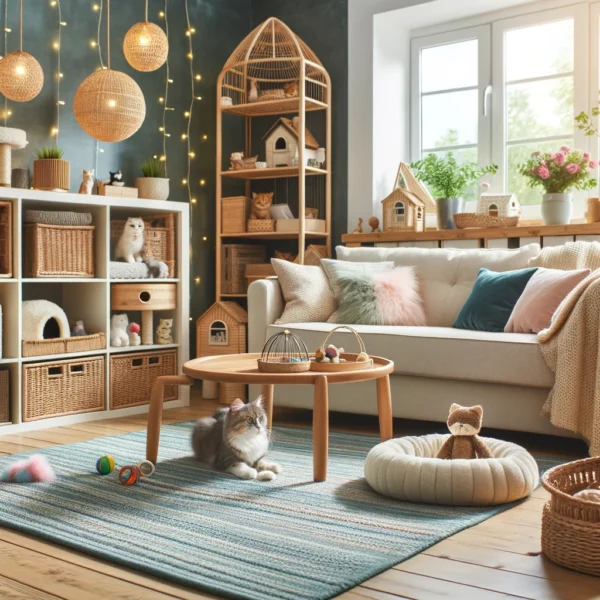

Ginger Cats in Popular Culture
The image of ginger cats as friendly companions is partly shaped by their portrayal in movies, TV shows, and books.
These media often show ginger cats as warm and sociable, which can affect how we see them in real life.
Take Garfield, for example. He’s a famous cartoon character known for his orange fur and larger-than-life personality.
Garfield is funny, laid-back, and has a big appetite.
His character has become so well-known that it’s common for people to associate his traits with all ginger cats.
Other examples in popular culture include Puss in Boots from the “Shrek” series and the charming cat from “Breakfast at Tiffany’s.”
These characters are memorable and often show positive traits. They’re clever, friendly, and have a certain charm.
This representation helps build a general image of ginger cats as amiable and endearing.
However, it’s important to remember that these are fictional characters.
They’re created to entertain and might not accurately reflect real cat behavior.
In reality, a cat’s personality is determined by many factors, as mentioned earlier.
While these popular representations contribute to the stereotype of friendly ginger cats, each real-life ginger cat may have a personality that’s quite different from these fictional characters.
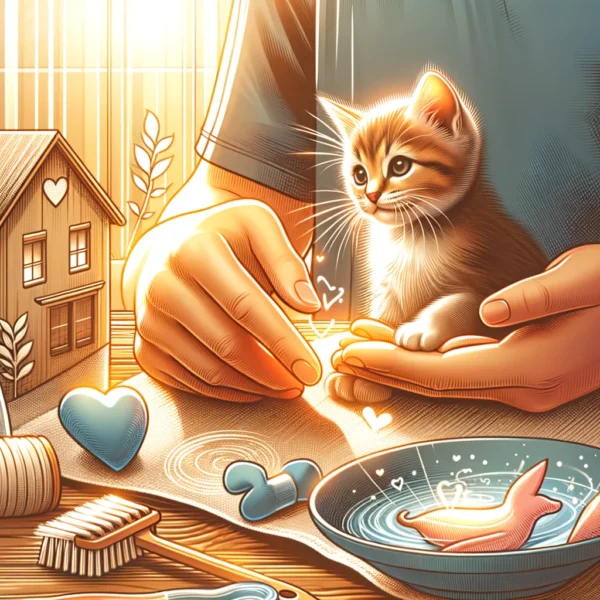

Caring for a Ginger Cat
Thinking about adopting a ginger cat?
Remember, it’s their unique personality that matters most, not just their coat color.
Each cat is different, and their individual traits are what make them special.
Socializing your cat is crucial.
Spend time with them, play with them, and introduce them to new people and experiences gently.
This helps them become more comfortable and confident around others.
Proper care is also essential.
This includes regular vet check-ups, a healthy diet, and keeping them active.
A cat that feels well and healthy is more likely to be happy and sociable.
A loving environment makes a big difference.
Cats thrive in homes where they feel safe and loved.
Show them affection, give them a comfortable space, and be patient as they adjust to their new home.
Remember, a cat’s behavior isn’t just about their breed or color.
It’s about how they’re raised and cared for.
A ginger cat, like any other, will develop its personality based on the environment and care you provide.
Whether they’re playful, cuddly, or independent, what matters most is the loving bond you’ll share.
In conclusion, while ginger cats are often perceived as friendlier, this notion is more anecdotal than scientific.
Each cat is unique, and their personality depends on various factors.
Whether you’re a seasoned cat owner or contemplating your first feline friend, understanding and respecting their individuality is the key to a rewarding companionship.
Remember, the beauty of pets lies in their unique quirks and characteristics, and ginger cats, with their striking appearance and charismatic presence, are no exception.
FAQs:
- Q: Does the color of a cat’s fur influence its personality?
A: No, there’s no scientific evidence to suggest that fur color directly impacts a cat’s personality.
Factors like genetics, environment, and socialization are more influential. Q: Are ginger cats generally friendlier than other cats?
A: While ginger cats are often perceived as friendly, this is more a stereotype influenced by popular culture than a proven fact.
Each cat, regardless of coat color, has its unique personality.
Q: Can the way I raise my cat affect its personality?
A: Yes, early socialization, a loving environment, and proper care play significant roles in shaping a cat’s behavior and temperament.
Q: Why are ginger cats so popular in movies and cartoons?
A: Ginger cats often stand out due to their bright fur color and have been depicted as charismatic and friendly in various media, which has contributed to their popularity.
Q: Is it okay to choose a cat based on its coat color?
A: While it’s natural to be drawn to a certain appearance, it’s more important to consider the cat’s personality and how well it fits with your lifestyle and family.
Q: How can I ensure my cat is well-socialized?
A: Regular interaction with people and other animals, positive experiences, and gentle handling, especially when they are kittens, are key to well-socialized cats.
Q: Do ginger cats have specific health issues?
A: There are no known health issues unique to ginger cats.
Like all cats, they should have regular veterinary check-ups and a healthy lifestyle.





